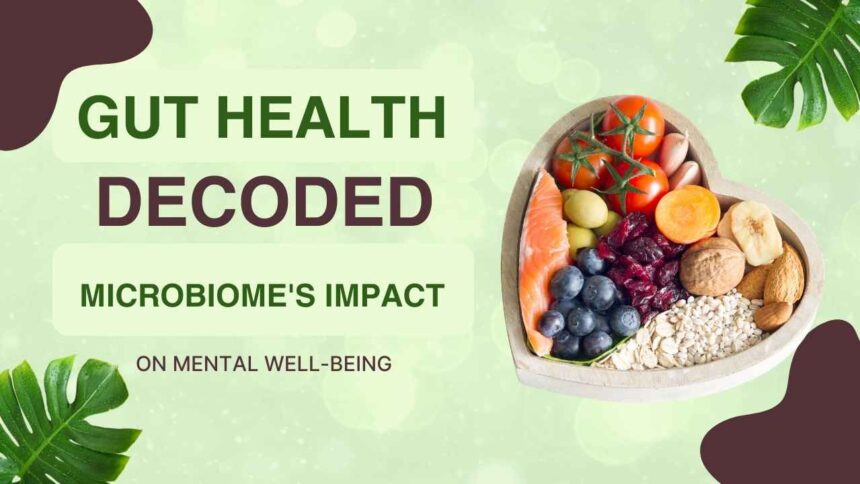You’ve probably heard the phrase “gut feeling.” Turns out, there’s more truth to it than you might expect and it’s not just about butterflies before a big decision.
Over the past few years, researchers have started connecting the dots between what’s happening in your digestive system and how you feel emotionally. At the center of it all is something you can’t see, but is very much alive and working hard behind the scenes: your gut microbiome.
It’s a strange little world inside your body. And it might be affecting your stress levels, mood, sleep, and even the way you think.
So, What Is the Gut Microbiome?
Imagine a bustling community made up of trillions of bacteria, viruses, and fungi most of them friendly. That’s your microbiome. It lives mainly in your intestines and helps break down food, absorb nutrients, and even fight off invaders.
But it does more than just support digestion. It sends signals to your brain. Constantly.
There’s actually a direct connection between the gut and the brain, often called the “gut-brain axis.” Messages travel both ways from your head down to your stomach and back up again.
The Gut-Feeling Link Is Real
Ever lost your appetite when stressed? Or felt nauseous before something nerve-wracking? That’s your brain and gut talking to each other.
Now researchers are finding that the reverse might be true too. When your gut is off balance too many harmful bacteria, not enough of the helpful kind it can mess with your mood, trigger anxious thoughts, or even make it harder to focus.
It’s not the only factor, but it’s a piece of the puzzle that hasn’t always gotten enough attention.
How Gut Health Influences Mental Clarity
A healthy gut helps produce key chemicals like serotonin the one often called the “feel-good” neurotransmitter. In fact, most of your serotonin is made in your gut, not your brain.
So when your gut is thriving, you’re more likely to feel stable and calm. When it’s struggling, you might feel foggy, moody, or stressed without knowing why.
What You Can Do to Support a Healthy Gut
You don’t need a full lifestyle overhaul to make progress here. A few everyday shifts can go a long way.
- Eat more fiber-rich foods. Things like oats, berries, leafy greens, beans they feed the good bacteria.
- Try fermented stuff. Yogurt, kefir, sauerkraut, kimchi these bring helpful bacteria straight to your system.
- Cut back on ultra-processed snacks. They often feed the wrong kind of bacteria.
- Get outside. Exposure to different environments can help diversify your gut flora.
- Sleep and stress matter, too. Your gut likes it when the rest of you is taken care of.
You don’t need to follow a rigid plan. Just build a mix of habits that feel doable and stick with them.
What to Watch For
Gut health isn’t just about stomach issues. If you’re feeling constantly drained, down, or stressed and nothing else seems to explain it checking in on your gut might be a smart move.
It’s always worth having a conversation with a healthcare provider if things feel off. They can help you sort out what’s going on and rule out anything serious.
The Connection Is Still Being Explored but It’s Already Helping People
Science is still catching up to what a lot of people have noticed firsthand: when your digestion improves, your mood often follows.
It’s not magic. It’s biology. And more folks are starting to tune into how powerful that connection really is.
You’re Not Alone in This
More people are waking up to how deeply connected their bodies and minds really are. You don’t have to become an expert in microbiology just staying curious and taking small steps to support your gut can change the way you feel, from the inside out.


